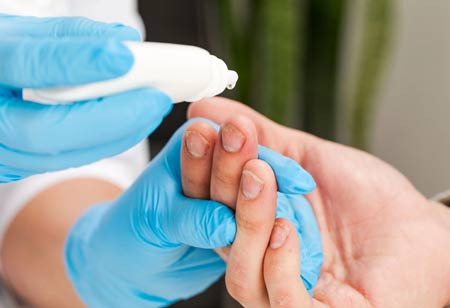What Are the Effective Treatments for Nail Fungus and Psoriasis?
Antifungal medications, home remedies, and topical nail psoriasis treatments are some of the most significant treatments for nail fungus and psoriasis.

By
Medical Care Review | Sunday, July 30, 2023
Stay on top of your health and well-being with exclusive feature stories on the top medical clinics and treatment centers, expert insights and the latest news delivered straight to your inbox. Subscribe today.
Antifungal medications, home remedies, and topical nail psoriasis treatments are some of the most significant treatments for nail fungus and psoriasis.
FREMONT, CA: Nail fungus and psoriasis are two nail-related disorders. They have similar symptoms, and fungus and psoriasis can coexist, but they are not the same and require separate treatments. Nail fungus is an ailment caused by fungi that get under the nails. The fungus makes nails thick, discolored, and brittle. Onychomycosis is another term for nail fungus.
Nail psoriasis is an autoimmune disorder in which skin cells proliferate abnormally fast. Psoriasis, like nail fungus, causes discoloration and pitting of nails. Most people with nail psoriasis have scaly skin rashes, and they may experience joint pain, known as psoriatic arthritis.
Both fungus and psoriasis can harm the nails on the fingers and toes. However, nail psoriasis tends to affect only the fingernails, whereas fungus tends to affect the toenails.
Individuals cannot get nail psoriasis from someone else or spread it to others. Nail fungus on the other hand is infectious and can transfer from one person to another.
Nail fungus and psoriasis cause: Fungi cause nail fungus. Mold, yeast, and mildew are examples of microorganisms. The most common fungal nail infection, tinea unguium, is caused by a mold known as a dermatophyte. Walking barefoot in public areas, such as swimming pool decks and locker rooms, can expose people to fungus. Fungi can grow in wet shoes. Once on the feet or hands, these organisms can enter the nails and reproduce. Athlete's foot is a fungal illness that can extend to the toenails.
Psoriasis is an autoimmune disorder. The immune system overreacts, causing inflammation in the skin, which accelerates the formation of new skin cells. Extra cells pile up on the skin, forming scaly patches. Psoriasis inflammation can also damage the nails, resulting in pitting, thickness, and color changes. Nail psoriasis affects over half of all psoriasis patients, and up to 90 percent will experience nail problems at some point in their lives.
The treatment for nail fungus and psoriasis includes:
Antifungal medicines: Topical antifungal medications for nail fungus include:
● Efinaconazole (Jublia) cream
● Tavaborole (Kerydin) cream
● Ciclopirox (Penlac) medicated nail polish
Individuals may apply topical medications to their nails every day to prevent new fungus from forming. When the nail grows out, the fungus should be gone. This process can take some time. Fingernails sprout in 4 to 6 months. Toenails take 12 to 18 months to completely grow out.
Topical nail psoriasis treatments: For mild nail psoriasis, the doctor may prescribe one of the following topical medications that one can apply directly to their nails:
● Corticosteroid cream
● Calcipotriol (Dovonex, Sorilux)
● Tazarotene (Tazorac)







